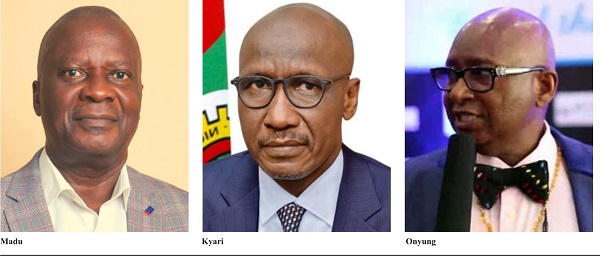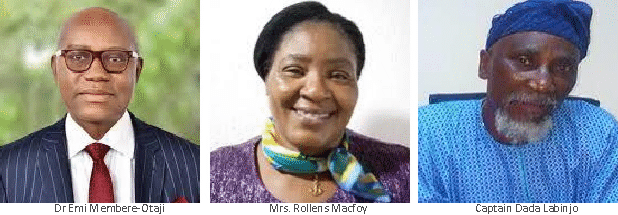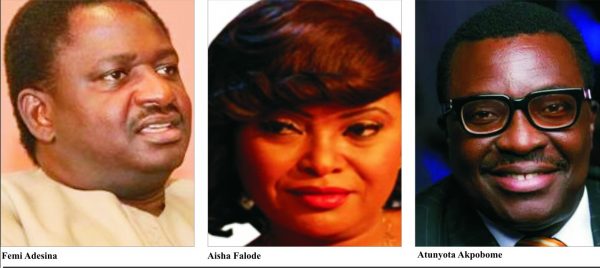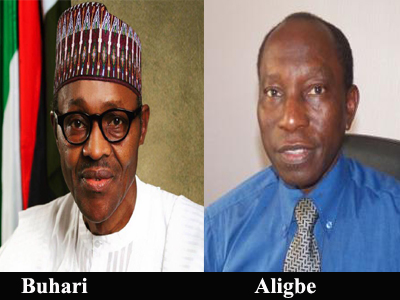Leadership and Politics in Nigeria’s Maritime Industry
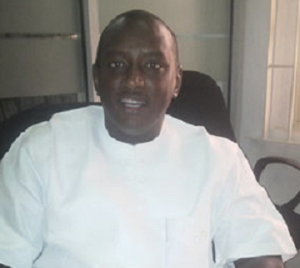
Nigeria’s maritime industry is widely believed to have numerous untapped potentials which could make the industry the largest revenue spinner for the nation. Several industry stakeholders and economic analysts have estimated that the nation’s maritime sector when optimally harnessed could generate over N7 Trillion per annum.
In order to tap from the enormous revenue inherent this sector there will be need for an overhaul of policies, institutional, regulatory and legal framework. However, the quality of leadership paraded in the key maritime agencies is worrisome, especially as the apex positions in these organizations are used as tools for political settlements.
The nation’s revenue generation has suffered immensely from the dwindling global crude oil prices, but with all the hullabaloo of diversifying the economy, concerned stakeholders are beginning to wonder if the government actually sees the maritime industry as a viable sector that is expected to play a key role in transforming the economic fortunes of Nigeria by increasing foreign exchange, creating jobs and generating revenue for the nation.
The nation’s maritime terrain is plagued by unfavourable policies and exorbitant port charges that have seen ports in neighboring countries getting more cargo traffic. There are also several crucial bills before the National Assembly such as the Petroleum Industry Bill (PIB), the Ports & Harbour Bill, the Bill establishing the Economic Regulator (shipping sector), the Maritime Zones Bill etc. waiting to be passed and the unsuccessful implementation of the Cabotage Act lingers.
If the government does have lofty ambitions for the sector, shouldn’t it be evident in the appointment of helmsmen at the several maritime organizations? Doesn’t leadership play a role in improving the quality management in these agencies and subsequently, the performance of the organizations? MMS Plus spoke with several industry stakeholders to get their views on this issue.
The Acting President of Nigerian Indigenous Ship-owners Association (NISA), Alhaji Aminu Umar lamented that the maritime sector has not enjoyed a good leadership over the years. He also attributed the high level of corruption and mismanagement in the maritime sector to the poor leadership in the industry.
“It is unfortunate that the people at the helm of affairs in key maritime agencies do not understand the opportunities and benefits that the nation stands to gain when they engage the stakeholders in the industry” Aminu said.
Aminu stressed that the maritime industry was a critical one which required leaders with a lot of knowledge about shipping and other related disciplines to be able to come up with good policies and ensure the implementation of the already existing ones.
“We need leaders that will create jobs for the maritime industry, create wealth and make revenue for the government” he opined.
Mr. Oluwole Adeyemi, the Deputy National President of the National Association of Government Approved Freight Forwarders (NAGAFF) noted that appointments ought to be made to correct things in the industry while the issue of politics was always there to muddle things up.
“There is no doubt the Nigerian maritime industry needs technocrats but we also have to realize that the government will always seek to patronize those who have put in a lot for them. That is why politics will always be involved” Oluwole said.
However, he maintained that as a graduate one is already trained to be able to go anywhere and function appropriately especially when he gets the right people as subordinates and advisers.
“One cannot really fault the appointment of someone like Dr. Dakuku Peterside as the Director General of Nigerian Maritime Administration and Safety Agency (NIMASA). He lost an election but he has done his very best for his party. He is learned and he is from the South-South, if he surrounds himself with knowledgeable people he will succeed” Oluwole stressed.
The Head of Maritime unit at Olisa Agbakoba Legal (OAL), Dr. Oluwole Akinyeye maintained that issue of appointment of leaders with regards to the maritime sector should not cause a fuss if due process had been followed prior to the appointment.
“I believe due process must have been applied in opportunity such people. I know certain people are vary of the fact that some of these leaders are not technocrats in that field, but they could surround themselves with a management team full of technocrats. So the fact that someone who is not exactly a technocrat in a particular field doesn’t mean that the agency will not move forward” Dr. Oluwole stated.
However, the DG of Multimix Academy, Dr. Obiora Madu maintained that the government must see some sectors as very technical and as such they should require technocrats. He stressed that such kind of positions shouldn’t be used for political settlements.
“In the past it has been proven that putting the right people in appropriate positions will produce results. Ben Bruce went to NTA and He was a success; Dora Akunyili went to NAFDAC and we saw the great results; Akinwunmi Adesina was on a World Bank project in Kenya but we brought him to Nigeria and we saw the results” Dr. Obiora noted.
According to Dr. Obiora, the sector is bound to get negative results when we play politics with the appointment of leaders in the industry. He opined that the secret to attaining the best for the industry is for the government to seek for knowledgeable people, give them the position and allow them to run the show.
“In NIMASA for example, the banana peel is constant as nobody survives there for a long time. I think it is strategy and professionalism that is required to boost the leadership in these maritime agencies and the industry at large. It is very simple, the secret is to hire good people and set them free”, he said.
The role of leadership in quality management is a major part of any organizational developmental strategy and the maritime industry needs leaders that understands the environment, maintain and foster employee responsibility.
As John Maxwell posits, “a leader is one who knows the way, goes the way, and shows the way”. The maritime domain needs such leaders who understand the challenges as well as opportunities in the sector. One who can quickly diagnose and implement the multiple factors to be carried out to the guarantee the development of Nigeria’s maritime industry and move it from its state as a sector with potentials to a sector that generates revenue and creates massive employment.
By Kenneth Jukpor




